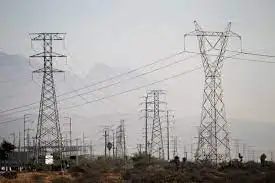GMÂ’s Volt on track for 2010
By Toronto Star
Protective Relay Training - Basic
Our customized live online or in‑person group training can be delivered to your staff at your location.

- Live Online
- 12 hours Instructor-led
- Group Training Available
"I would say there's almost no reasonable doubt in our minds anymore that this is going to work," said Lutz, who heads vehicle development for GM.
GM is designing the Volt to run on battery power alone for 40 miles, but some industry rivals and even some of the automaker's executives have questioned whether next-generation lithium-ion batteries could be ready for production of the highly anticipated vehicle in 2010.
Lutz, who was speaking to Reuters after an address to a Detroit-area business group, said GM engineers had shown the battery packs now being tested could power vehicles to the company's target mileage and beyond.
"They've routinely had it to the high 30s, low 40s and they go up hills with it and everything," said Lutz.
GM's Volt is on track to become the first mass-market rechargeable car, a step that would put the embattled U.S. automaker ahead of rivals such as Toyota Motor Corp in a key fuel-saving technology at a time when sales of its mainstream trucks and SUVs have hit the skids.
The contract to build a power source for the Volt has also emerged as a crucial, early test of efforts to adapt the batteries widely used in consumer electronics to drive cars.
Lutz said he had driven a test vehicle equipped with a Volt battery pack 15 miles as part of a regular review of the Volt development effort with GM chief executive Rick Wagoner and chief operating officer Fritz Henderson.
GM, which has been unusually open in its effort to develop the Volt, has previously shown modified Chevy Malibu sedans it is using at its Michigan test track to check the real-world performance of batteries designed for the Volt.
"They're still in the old Malibu bodies so they still look wretched, but the beauty of that car is in the driving," said Lutz.
"It never shifts and you just scream along in total silence," he said, in describing his test drive.
A unit of South Korea's LG Chem Ltd has said it is ready to supply batteries for the Volt after making a third- generation battery prototype for the car.
German auto parts supplier Continental AG, adapting battery technology used by privately held A123 Systems, is also competing for the Volt battery contract.
GM is designing the Volt to be recharged at a standard electric outlet overnight. It will also capture energy from braking like a traditional hybrid and feature an on-board engine as a backup generator to send power to the battery on trips over 40 miles.
Environmental advocates have pushed for the development of such "plug-in" vehicles to cut oil consumption and vehicle emissions. The technology could also help GM meet higher federal fuel economy standards, representatives have said.
Lutz said GM engineers were working on how to smooth the power handoff from the Volt's battery to the on-board engine, something designed to kick in as the battery is depleted.
"It all works real well, it's just that the transition from battery power to the internal combustion," Lutz said. "They said it's still noisy and it's a little rough. But heck, we've got a little more than a year and a half to work on that."
When asked, Lutz said GM was near naming a supplier for the closely watched contract, but declined to comment further.
Toyota has said it will start producing lithium ion batteries through a joint venture with Japan's Matsushita Electric Industrial Co Ltd in 2009. The automaker, which has eclipsed GM as the world's largest by sales volume, plans to roll out a plug-in hybrid for fleet customers in 2010.
But Lutz said Toyota deserved more scrutiny for its earlier, apparent dismissal of lithium-ion battery technology at the time GM announced the Volt a year and a half ago.
"They told the world that GM was taking a huge risk, that lithium ion batteries were prone to explode and that we were putting our customers at risk and that they would stay with the tried and true," he said. "When it comes to Toyota, let me tell you, the press has a short memory."











